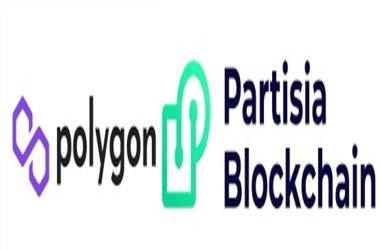
Since the introduction of the initial smart contract in 2009 alongside the introduction of Bitcoin, the siloing of the two distinct types of smart contracts — public and private — has impeded the growth of blockchain applications. Public or accessible smart contracts compromise privacy, providing a barrier for utility cases requiring the maintenance of confidential health or financial information.
However, private smart contracts cannot be readily audited or validated by a third party. Zero-knowledge proofs have shown their security credentials, but they are not without drawbacks. From susceptibility to security vulnerabilities and requires a substantial quantity of calculations. Nonetheless, the obstacles are eliminated when paired with MPC’s capacity for multi-user interactions. The combined effect permits the consolidation of private and public smart contracts in order to increase effectiveness and offer arbitrary secrecy.
By exploiting zero-knowledge multi-party computing and the consolidated public and private smart contracts of the Partisia Blockchain, programmers may create hundreds of Polygon-powered use cases, such as:
Distributed search engines – Currently, advertising-centered search engine approaches expose consumers to a poor user interaction and the danger of being prey of click-bait, false news, frauds, as well as other viruses. As an option, the “Better Internet Search” effort has incorporated Partisia Blockchain’s unified smart contract to provide an unique, ad-free service and provide query results sans gathering users’ personal information. This is the strength of zk computation: encrypted information is never decrypted, and any product data presented has been calculated using MPC to be as pertinent to the user’s interaction without ever decrypting personal information.
Monetizable content in decentralized social media — In the near term, the enhanced data security of zero-knowledge MPC enables the secure and regulatory-compliant usage of users’ most vital but critical information. This has the ability to alter the current internet economy’s power relationships and increase competition at the application and service standards in the long term. A excellent example is the “Data for Good” platform, which allows anybody to give data without exposing personal details by balancing secrecy and openness utilizing MPC and blockchain.
Industry of Trade Finance and decentralized marketplaces – The group underpinning Partisia Blockchain performed a decentralized exchange in 2008, which was succeeded by a series of MPC-based auctions in the energy, banking, and telecommunications industries. Partisia’s first emphasis is on linking disparate blockchains and enabling users to transfer data and tokens smoothly from one blockchain and safety paradigm to another. The objective is to enhance engagement in current DeFi solutions and decrease the threshold for introducing DeFi to conventional markets.
Private Auctions – As supply chains and specialty items get more complex, price fixing and auctions are transforming into an integral feature of several marketplaces. Using a single smart contract, it is feasible to monitor buyers and sellers as well as the ensuing transactions while maintaining the secrecy of bids. In addition, the privacy component of zero-knowledge MPC may help eliminate shill bidding, which is the practice of jacking up the value of a product via dishonest offers.
Administration of private papers and information — In circumstances such as medical and health records, financial identities or credit ratings, etc., the capability to maintain portions of the contract secret while yet permitting public validation is vital.
Co-Founder of Partisia Blockchain, Brian Gallagher, exclaims, “We are delighted to realize the possibilities that integrated smart contracts provide.” We are convinced that this innovation will significantly alter how organizations and people interact in the future, and we are eager to see how it will be utilized.
“The incorporation of Partisia Blockchain’s universal smart contracts based on zero-knowledge, multi-party processing offers up many fresh and exciting opportunities for all Polygon programmers,” explains Antoni Martin, Polygon Enterprise Lead. “We are always enthusiastic to explore what new ideas and utilize cases blockchain technology may profit from, and our relationship with Partisia creates new opportunities.”